- The Project 2024
- The Army
- The characters
- The Stories
- Staff
- Ita
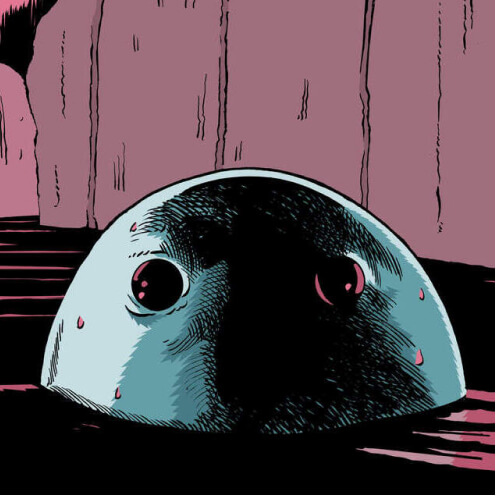
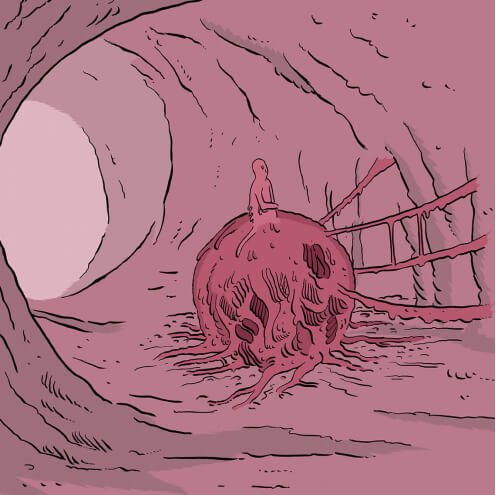
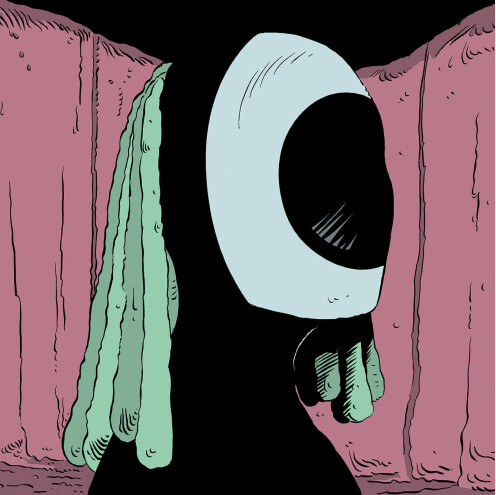
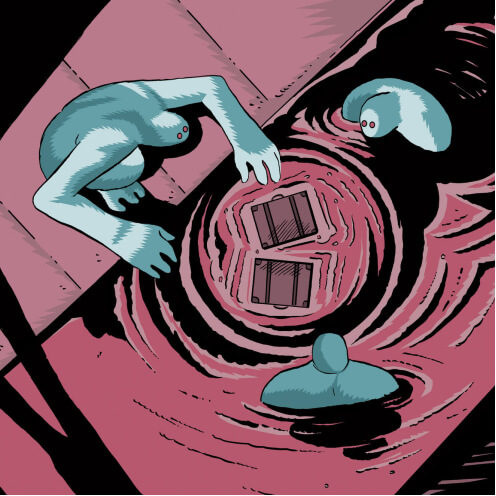
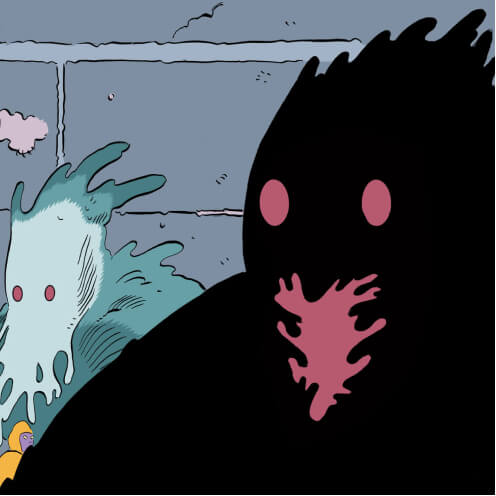
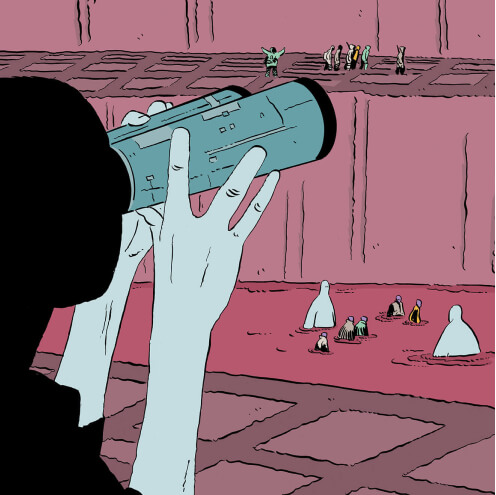
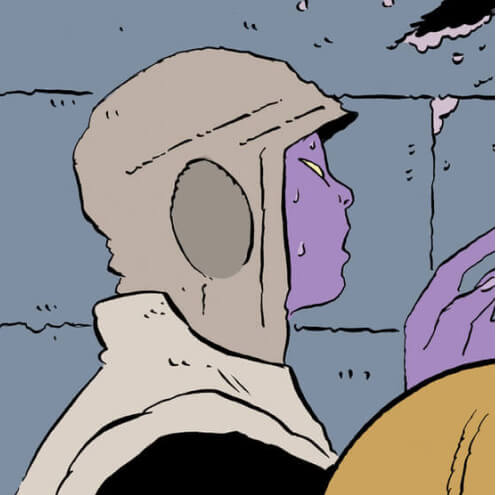
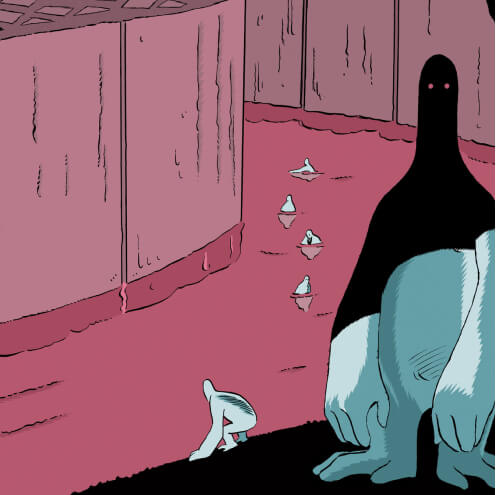
How does the immune system, which guards our bodies from its enemies (viruses, bacteria, protozoa, fungi and others) at all times, day and night, work? It is a powerful and complex apparatus, which in the vast majority of cases manages to win, but sometimes it gets out of control. Let’s tell its story, and immerse ourselves in this world full of surprises.
Discover the project

Imagine our body as if it were a nation, full of billions and billions of citizens (i.e. cells), with very long borders that fierce enemy patrols are constantly trying to cross, and also possible internal revolts by groups that no longer want to follow the rules (tumours).
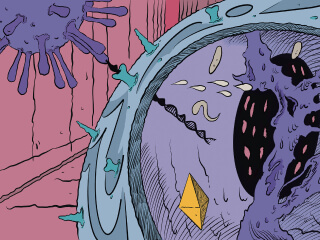
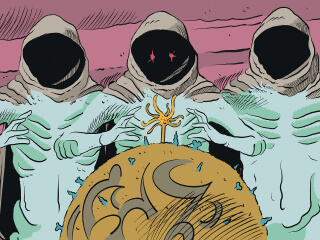
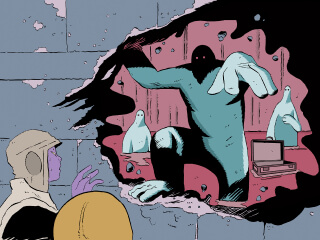
A nation that is not a democracy, but not a dictatorship either: simply, a place where the rules were set down thousands of years ago, and everyone has to respect them, no questions allowed. A nation in which citizens have to continually show their ID to the police and soldiers, who are everywhere, with their barracks and checkpoints. Welcome to the Human Body, our body: a fascinating place, but one that is in a constant state of alarm, where it is not easy to live.
Discover the army

The various departments of the security systems (in other words, of the immune system) act in a concentric manner, so that enemies have no chance. The first to intervene are the less specialised, but faster, agents, who can tell the difference between “bad” strangers and citizens and kill them instantly, without even knowing who they are (and without trial). If necessary, these departments also call in the help of special troops and the secret service, who know exactly how to identify and destroy every single enemy, but take much more time. Read more
Discover the characters

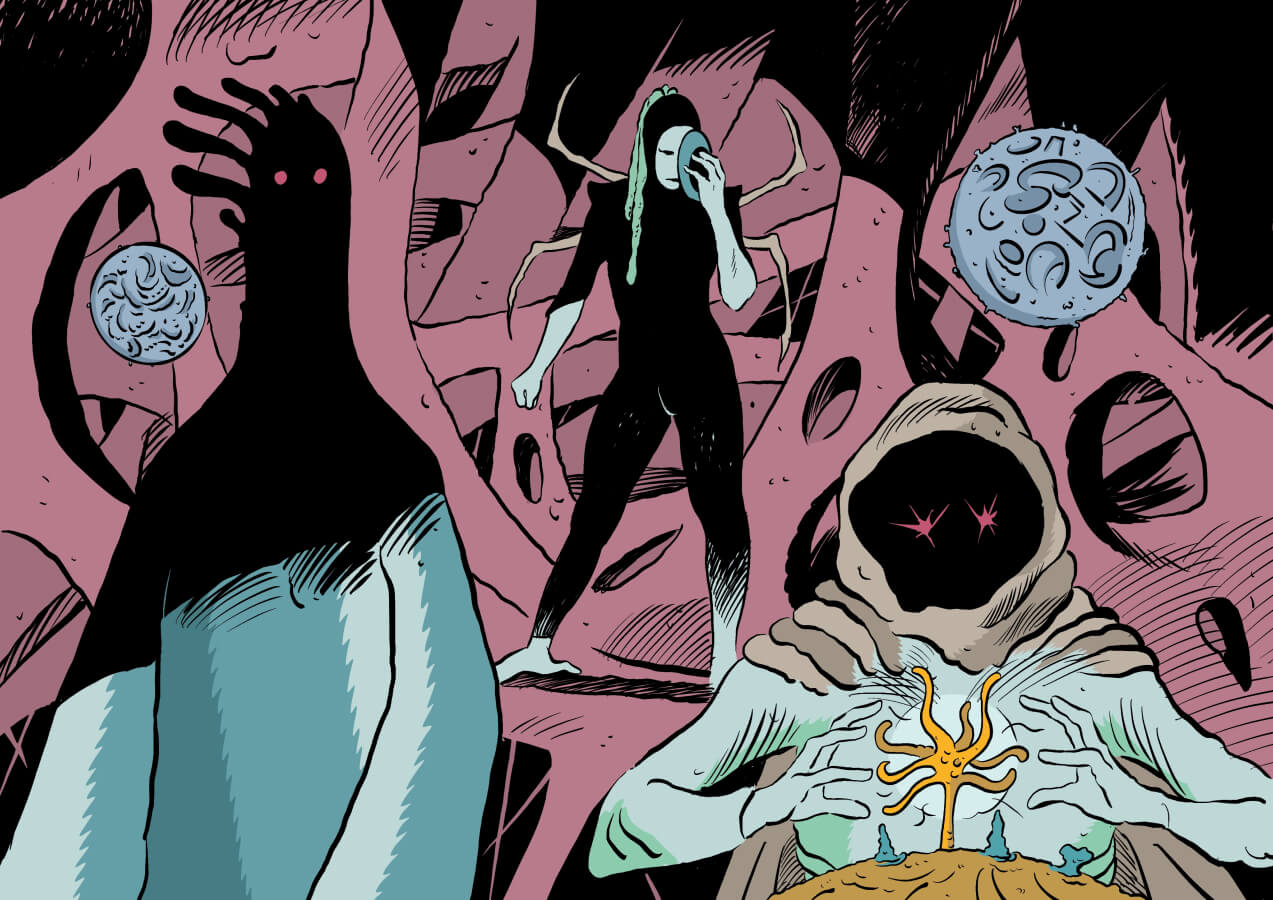
There are at least six key players in the army (the immune system) that protects our body - the nation - from its enemies.
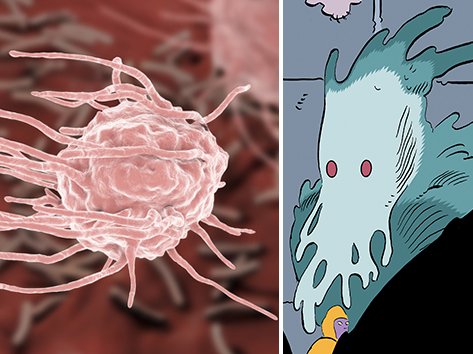
Order and cleanliness: this is the motto of the monocytes, which play the dual role of guardian and sweeper. After travelling through the bloodstream for a few hours, they enter our tissue, where they don the uniform of macrophages and remain on patrol for months. They specialise in phagocytosing, i.e. devouring and destroying: they do this when they have to clean tissue from the remains of dead or damaged cells, but also when they are confronted with a bacterium. More... Some macrophages, after having engulfed and killed the enemy, tear it into pieces. These pieces are then displayed on their outer membranes and presented to the lymphocytes to inform them of what has happened and to ask for reinforcements.
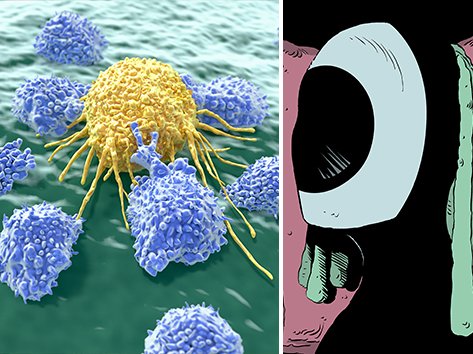
Born to kill: these are the natural killer cells, true and proper snipers ready to swing into action from the moment they are created in bone marrow. They have no memory, but an excellent aim that does not need honed with any special training. Thanks to their sense of smell, they can instantly recognise rebel (cancer) cells and those taken hostage by viruses: they attack them by launching enzymes and other substances that damage their outer membranes, causing them to die. More... As well as flushing out viruses, they can also handcuff them, thanks to interferon gamma, which stops them from replicating. Crucial in the initial defensive phase, natural killer cells also produce messages that are used to regulate several functions of lymphocytes and macrophages.
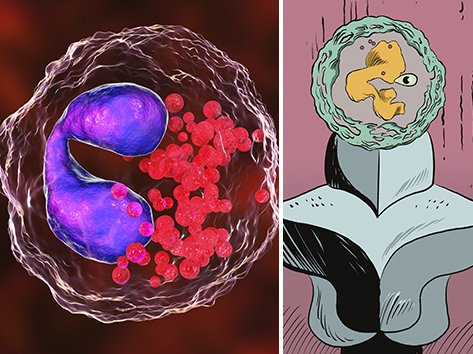
These are the sentries that work on the front line of the immune system, always on patrol along the rivers and canals of the bloodstream. They get their name from the special granules that are inside them, which - when examined under a microscope - respond differently to dyes (in particular, neutral, basic and acidic dyes). And hence, they are classified by researchers, depending on their similarities, into neutrophils, basophils and eosinophils. More... The most common are neutrophils, the agents of the security forces who are first to intervene when an enemy tries to enter our body. They have sensors on their membranes that sense the presence of an enemy, pointing the way to the site of infection. When they are faced with the intruder (usually a bacterium), they waste no time in checking its identity and take immediate action. To stop the intruder in its tracks, they can throw their "nets", or devour it, or dump granules full of toxic substances on it, which end up also killing the agent, who sacrifices himself like a true kamikaze. The degenerated neutrophil granulocytes, together with the material they have phagocytosed, form what is known as pus.
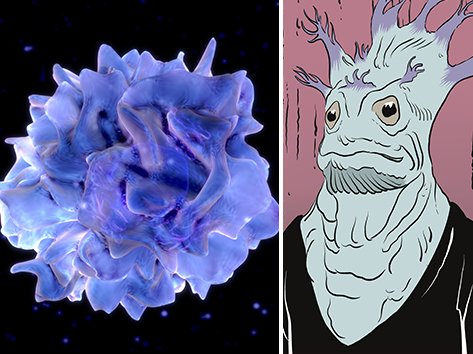
Dendritic cells are the secret agents of the immune system, always ready to gather valuable information to be passed on to the special lymphocyte departments. They are created in bone marrow, but then move incognito into all tissue, especially the tissue most at risk, such as the skin and mucous membranes. They have long branching arms, called dendrites, and as soon as they recognise an intruder they capture it and devour it. More... After literally tearing it into pieces, they run to the barracks of the spleen and lymph nodes to alert the lymphocytes and inform them of what has happened.
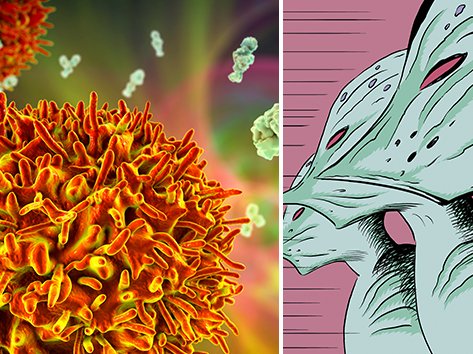
These are the ammunition carriers of the immune system. They are created and begin their studies in bone marrow, where they learn to recognise the enemy. To complete their specialisation, they then move into the spleen and lymph nodes. The first time they come face to face with the enemy, they are activated and put on their plasma cell uniforms, with the assistance of T helper lymphocytes who help them to get dressed. More... Once they are ready, they immediately set to work to make deadly ammunition - antibodies - which they produce specially over a period of several days depending on the enemy to be hit. In the meantime, some B lymphocytes turn themselves into memory cells and record the event, preparing a sort of manual that will help their companions to react more quickly when the threat presents itself again: thanks to their previous experience, they will be able to multiply and transform themselves into plasma cells to rapidly produce antibodies, guaranteeing a faster and more effective immune response.
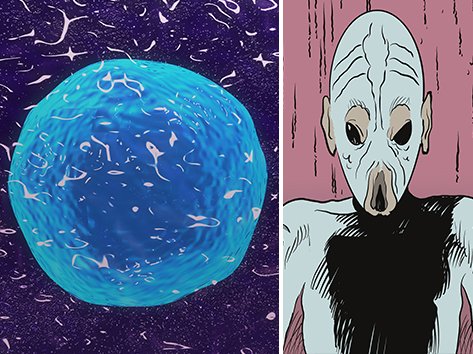
These are special agents that belong to the elite ranks. They are created in bone marrow and study at the thymus academy, a gland in the thorax located near the sternum. Here, each of them specialises in recognising a specific enemy, thanks to a kind of molecular scanner that verifies the identity card of the intruder. All T lymphocytes undergo extremely tough selection tests: on average, only one in ten T-lymphocytes is promoted, and when they graduate, they are put on patrol in the bloodstream. More... If the T lymphocyte detects a malicious microbe during its routine checks, it is activated and multiplies, forming a special team: some members are responsible for documenting and storing the close encounter in their memory; others prepare to take action, either as T helper lymphocytes (supporting B lymphocytes) or as cytotoxic T lymphocytes (against infected and tumour cells).
Discover the stories

Policemen who literally change face and become monsters when they have to take action. Officers who pierce the body’s enemies and inject them with toxic substances to dissolve them. Other soldiers who transform themselves into bullet-throwing machines. All this happens in our bodies...
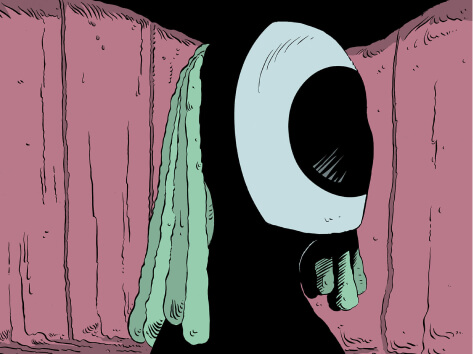
Cancer is constantly trying to trick controls, but Natural Killer lymphocytes almost always detect it
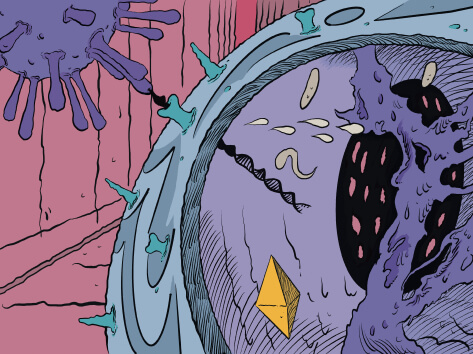
It’s not easy to block viruses. Here again, NK lymphocytes, together with B and T lymphocytes, are critical agents
Discover the staff

The immune system is the most indecipherable and complex system in our body, along with the nervous system. But the scientific texts that try to describe it are almost always equally obscure... We have tried to use a different way to explain it, while maintaining a solid scientific basis.

A scientific journalist with a focus on the world of medicine, Paolo has worked for Rizzoli-Corriere della Sera and Mediaset. He founded PRC-Comunicare la Scienza, an agency specialised in scientific communication based in Lugano
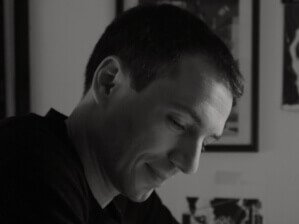
Illustrator and drawing teacher, Marino has published four graphic novels and exhibited his work in several European galleries. In 2012, he won the Nuove Strade award from Naples Comicon and Centro Fumetto Andrea Pazienza as best emerging talent

Annamaria worked as an associate professor of clinical pathology and immunology at the Faculty of Medicine and Surgery at the University of Pavia until 2018. She also directed the Inter-University Center for Immunity and Nutrition (University of Pavia and Bologna)

MaskeDesign is a web workshop, a creative laboratory, based in Milan, but with an international outlook. Starting from a solid traditional experience, it explores new expressive means and new languages of digital communication